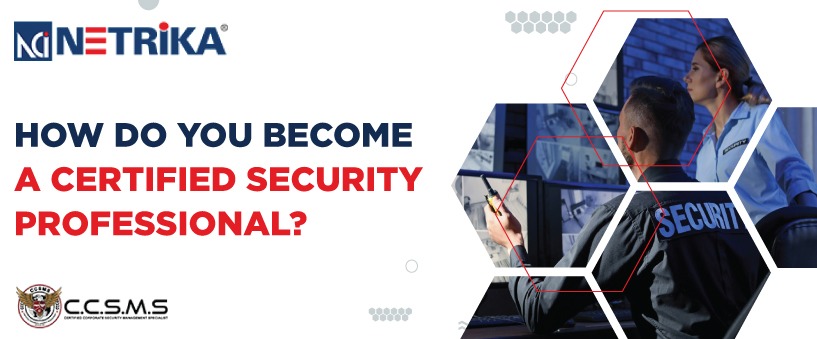
How Do You Become A Certified Security Professional?
Every organization is expected to manage security in an age of globalization and increasingly complex threat scenarios. This tendency is reflected in the fact that a wide range of companies is increasingly thinking about security in very broad terms and attempting to translate national security issues into corporate rhetoric. Corporate security certifications have become critical to understanding how national and corporate security interaction is now negotiated.
By focusing on the profession, best security management courses, and practise of national security within corporations, corporations can draw the boundary between security threats and the political ramifications of establishing such borders.
How to become a Certified Security Professional?
Security professionals work within an integrated security framework to identify threats and protect assets such as people, property, and information. A highly qualified individual with an understanding of current and developing security technologies and solutions would undoubtedly be preferred by an employer.
Netrika offers the Certificate in Corporate Security Management Studies (CCSMS) for security professionals who want to expand their expertise and design a path to senior positions in the competitive security business.
Here is how an aspirant can gain a certificate in corporate security –
- Meet the educational eligibility
A bachelor’s degree is required to become a cybersecurity expert. The aspirant must have education in either IT engineering, cybersecurity, system engineering, computer programming, or a related career. This might assist them in developing strong basics in basic cybersecurity principles.
- Determine the area of expertise
IT risk management, cybersecurity intelligence, cryptography, network security, vulnerability assessment, security architecture, and security administration are all specialisations in corporate security. Gain experience in the corporate security domain.
- Enrol in a certification programme
Aspirants can choose from corporate security courses in India or apply for global certificates. They can also explore getting a master’s degree in disciplines to further their skill set, abilities and specialisation.
- Apply for positions of leadership
You can apply for the project manager or leader position if you have gained adequate experience and skills. The corporate security management courses offer a professional a broad understanding of all sub-domains and highlight their accomplishments, credentials, skills, and professional experience while giving them an edge for leadership jobs.
What skills do you require to gain certified security professional credentials?
Here are some essential abilities for success as a security manager:
Technical knowledge
To become a cybersecurity specialist and gain corporate security certifications credentials, you must have a solid understanding of operating systems, physical security & systems, security software, hardware, common system vulnerabilities and malware threats.
Pressure-handling ability
A cybersecurity manager’s job is intellectually taxing since they must oversee and monitor several procedures simultaneously. Besides spending long periods staring at a computer screen, you may be required to travel to data centres, upgrade hardware, or visit different workstations. This work requires managing the stress and pressure of managing a team and securing company data. Security professionals may also be required to work long hours and be available for teams in multiple time zones.
Communication and Collaboration
Security managers typically oversee and supervise a team of experts and may work with other IT leaders inside the organisation. They may also be required to produce reports, keep records, and convey information to other top officials inside the organisation. Collaboration, communication and interpersonal skills are therefore critical for success. The ability to assign duties, provide feedback and analyse progress is vital, too, in this profession. As a result, security professionals must be capable of working as good leaders, communicators and mentors.
Problem-solving
Taking information from many sources and data points into account to quickly determine the course of action is critical for cybersecurity managers. Importantly, in the event of a data leak or intrusion, security managers may be required to act swiftly to handle many crises simultaneously and make judgements in short amounts of time. This requires strong analytical and problem-solving skills and good technical knowledge to enable them to make the proper decision. A dedication to lifelong learning is also required for security experts to stay current on the newest security threats, solutions, protocols and technology.
Pay close attention to the details
Security managers must pay attention to detail and be able to focus in order to find vulnerabilities, uncover abnormalities, and accurately examine code. They also need excellent market research abilities to choose the best cybersecurity technologies and software for their business needs.

